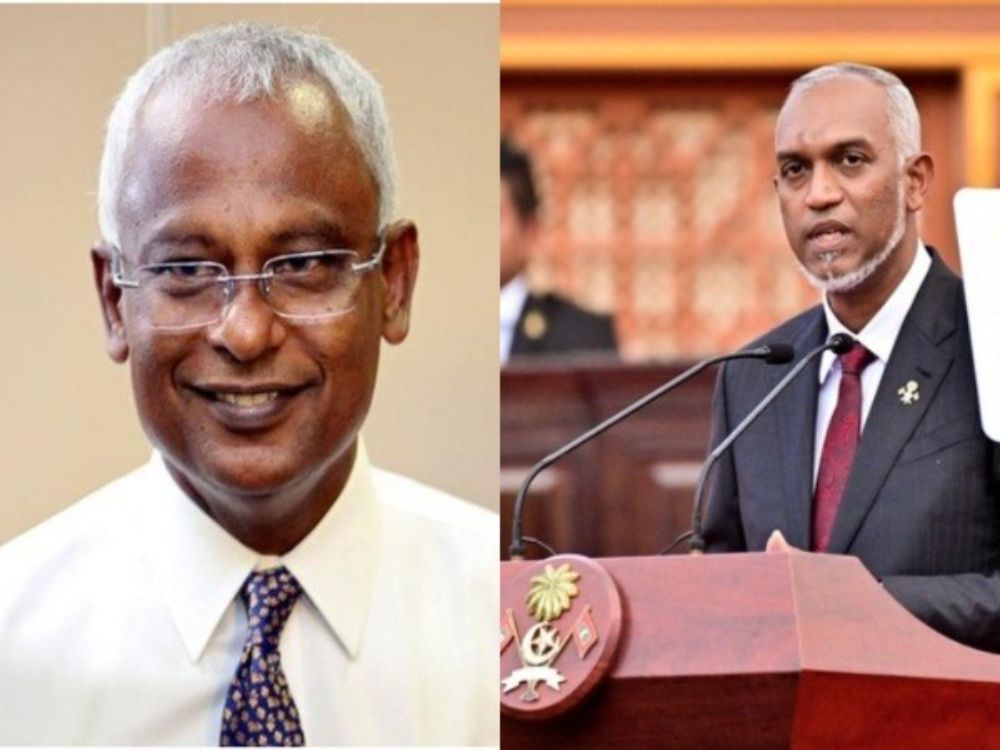Ibrahim Mohamed Solih, the former President of the Maldives, has called upon current President Mohamed Muizzu to abandon his obstinacy and initiate dialogues with neighboring countries to tackle the financial hurdles facing the nation. Solih’s remarks follow Muizzu’s recent appeal to India for debt relief, a move that has drawn attention given Muizzu’s perceived alignment with China.

Solih, speaking at an event in Male’ aimed at drumming up support for Maldivian Democratic Party (MDP) parliamentary candidates in the Maafannu constituency, highlighted that while Muizzu is reportedly considering talks with India for debt restructuring, the core financial challenges do not solely stem from loans acquired from India. According to Solih, Maldives owes a substantial debt of MVR 18 billion to China compared to MVR 8 billion owed to India, with a repayment period spanning 25 years.
Expressing confidence in the willingness of neighboring nations to extend support, Solih emphasized the importance of abandoning rigidity and pursuing constructive dialogue. He remarked on what he perceives as a recent understanding within the government regarding the gravity of the situation, contrasting it with what he views as public deception and the rebranding of projects initiated during his tenure.
Meanwhile, Muizzu’s stance towards India has been confrontational since his election, marked by demands for the withdrawal of Indian military personnel responsible for managing aviation platforms used for humanitarian and medical evacuations in the Maldives. Despite tensions, Muizzu asserted in his inaugural media interview that his actions and statements haven’t strained bilateral relations, reaffirming India’s status as the Maldives’ primary ally.
Muizzu’s conciliatory gestures towards India come amidst preparations for parliamentary elections scheduled for April 21. Notably, despite his presidency lasting four months, he is yet to visit India, breaking from tradition where Maldivian presidents typically make their first foreign trip to India. Instead, Muizzu visited China in January, signaling a shift in diplomatic priorities.
